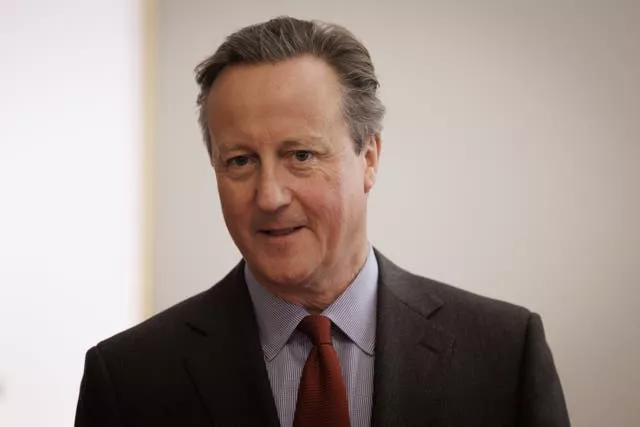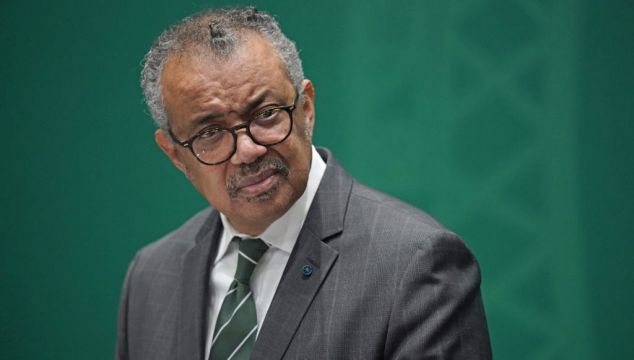The head of the World Health Organisation has thanked Ireland for its “moral leadership” on the Israeli bombardment of Gaza.
Dr Tedros Ghebreyesus, director-general of the World Health Organisation (WHO), made the comments during a visit to Dublin ahead of a pandemic convention.
Taoiseach Leo Varadkar said that he hoped diplomatic efforts would be made in the coming days and weeks to push for a humanitarian ceasefire after the UK and Germany strengthened their stance.

The Financial Times has reported that the UK foreign secretary David Cameron and his German counterpart Annalena Baerbock said efforts must be made to “pave the way to a sustainable ceasefire”, and that “the sooner it comes, the better”.
The Taoiseach said that the situation was “beyond critical” and that he and Dr Tedros had concerns that disease would kill more people than bombs in the coming days.
Speaking in Dublin, Dr Tedros said: “We also thank Ireland for its moral leadership on the crisis in Gaza.
“WHO is on the ground doing what we can but we cannot truly protect and promote the health of the people of Gaza without a ceasefire as the Taoiseach underlined.
“Without a ceasefire, there is no peace and without peace, there is no health.”
He added: “In so many places, the absence of health (is) because of the absence of peace, and vice versa. But in our fractured world, health is one of the few ways in which nations from across the geopolitical spectrum can come together to find common ground.”
Mr Varadkar said that there are thousands of people who are going to be denied normal healthcare due to Israel’s bombardment limiting food, water, and medical supplies into the enclave.
“Even in war, people get heart attacks, they have strokes, they get pneumonia, and if they can’t be treated, well then they’ll die of illnesses they otherwise would have survived and of course, particularly for women needing maternity care and even things like C-sections, they become almost impossible in the environment to which doctors are trying to operate in Gaza.
“I also have a particular fear, as does Dr Tedros, about the emergence of disease.
“When water is limited, when water supplies are contaminated, when there’s no sanitation available – we understand it’s one toilet per 350 people at the moment in Gaza – the inevitability is disease, and those diseases can take more lives in the space of a few days than bombs will take in a few weeks.”
In response to moves by the UK and Germany to call for a ceasefire in Gaza, Mr Varadkar said he hoped that diplomatic pressure to push for a ceasefire wouldn’t have to wait for an EU summit in the New Year.
The UK and Germany were among the countries that abstained in a recent UN vote calling for a humanitarian ceasefire.
“I hope we don’t have to wait until a new council meeting in January or February for that to happen. I really hope that it will happen in the next couple of days or couple of weeks,” he said.
“I do note a growing sense, I believe, from the United States government, that they’re becoming increasingly uncomfortable with what’s happening in Gaza and they have influence that perhaps we don’t have and that will be brought to bear.”







